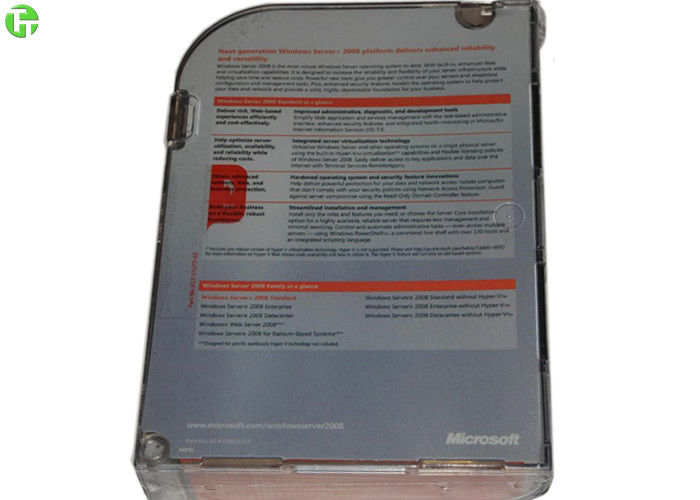
Dell Oem Windows Server 2008 Foundation X64 Means
Dell Windows Server 2012, Foundation Edition - ROK Kit. ROK Kit Windows Server 2012 Foundation is full-featured 64-bit version of Windows Server that enables core. Windows Server 2012 R2 on Azure. Microsoft® Windows® Small Business Server 2008 Microsoft® Windows® Essential Business Server 2008 Microsoft Windows Server® 2008 SP2, x86/x64 (x64 includes Hyper-V™) Microsoft Windows Server® 2008 R2, x64 (includes Hyper-V™ v2) Microsoft ® Windows HPC Server 2008 Novell ® SUSE Linux Enterprise Server Red Hat® Enterprise Linux Sun.
It seemed like a simple enough task – Install Windows Server 2003 R2 Standard x64 on a Dell PowerEdge 2950 x64 server that is about a year old. The server contains three 500GB SATA drives plugged into an internal PERC 5/i SAS RAID controller.
Local business extractor serial. The server also lacked an internal floppy drive, and there was no available slot to add one. The problem started out being that the Windows installer didn’t see the system’s hard drives during the setup process. This is a common problem, especially with newer RAID controllers. Normally you can load the manufacturer’s drivers during the Windows setup by pressing F6 – S to specify mass storage drivers once the blue installation screen appears.
I had to search long and hard to find the Dell Windows Server 2003 64-bit drivers for the PERC 5/i because for some reason when you enter your server’s system tag and search for SAS RAID drivers only the 32-bit version is available for download. I added the 64-bit RAID controller drivers to my floppy disk, but when I pressed F6 – S to specify new drivers, Windows did not detect the presence of my USB floppy drive, which I had plugged into the USB ports on the front of the server. I rebooted the server with the drive into plugged into a USB port on the back of the server, but had the same result. Next I tried copying the drivers to my USB flash drive, which I tried in the ports on both the front and the back of the server, and the installation program failed to see that drive as well. I searched for a solution, and of course I didn’t find one.
I did find a link to the, which allows you to copy mass storage drivers to a USB flash drive and have them recognized by Windows during an installation. This sounded like exactly what I needed.
I downloaded the USB utility, and when I executed it I was informed this program would format my flash drive, which would obviously delete everything I had saved to it. I went and found a different drive that I didn’t care if it’s contents were deleted, and ran the program. It took about three seconds to run, and I went back to my server and ran the Windows 2003 setup again – and once again the installer did not recognize my flash drive.
I tried to view the contents of the flash drive on a Windows XP computer, but I was informed the flash drive was not formatted. Obviously, I had done something wrong. After reading the USB utility’s readme file, I found I had missed some very important details. Information from the USB utility’s readme file are highlighted in red.
One of the files in the driver package is TXTSETUP.OEM. Edit TXTSETUP.OEM with NOTEPAD (or a text editor of your choice). In the [Defaults] section locate the line that starts with “scsi = “. The value on the right hand side of the equals sign must represent the Windows Server 2003 mass storage driver. The values permitted on the right hand side of the equals sign are defined in the [scsi] section. If the value on the right hand side represents the Windows 2000 mass storage driver, it must be updated.
Contoh judul tesis manajemen pendidikan islam. The following table lists the drivers that are available for download for 9G servers. The table indicates whether the TXTSETUP.OEM file needs to be updated at the time this document was written (Oct 24, 2006).